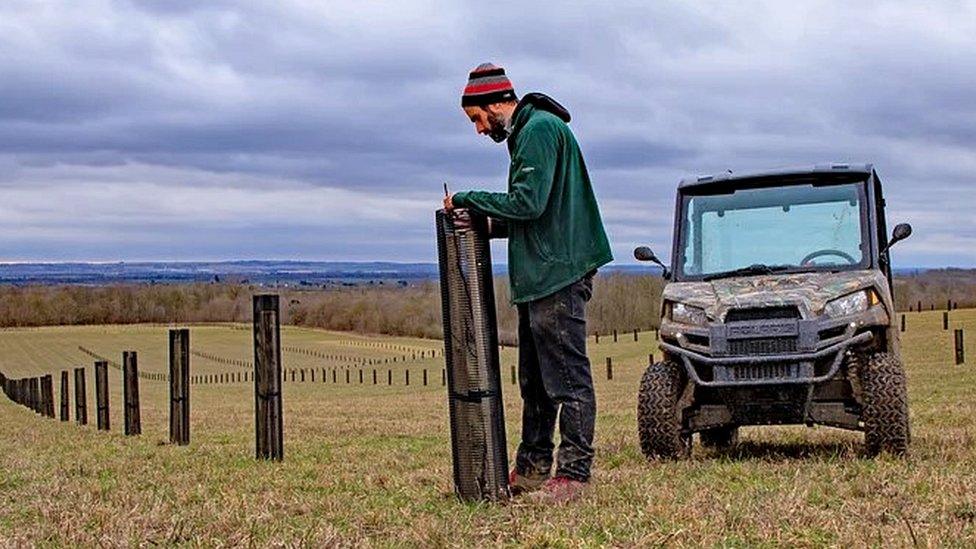Watermill revives traditional flour production
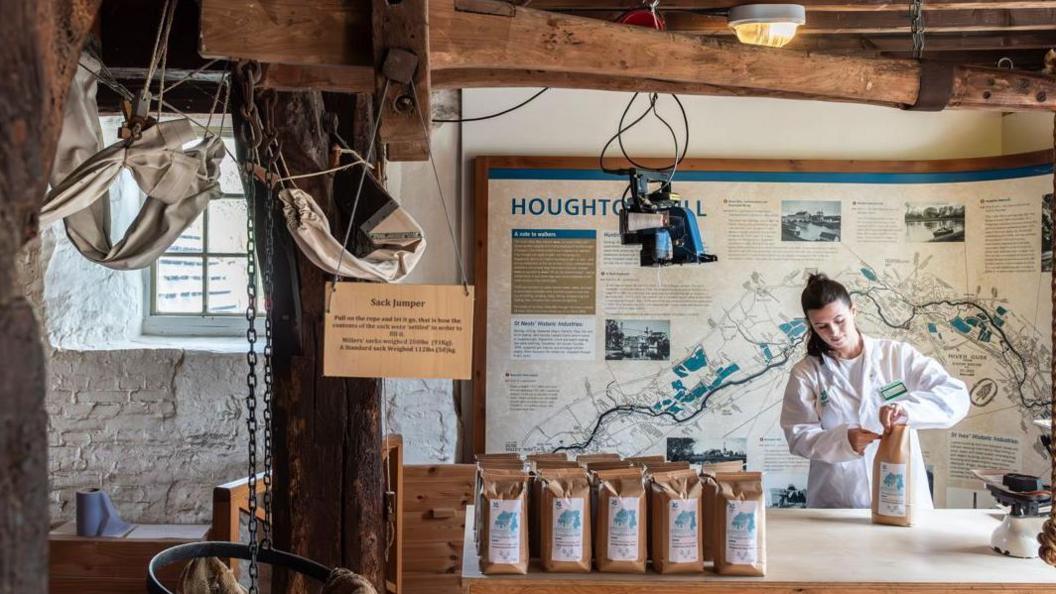
Flour milled using a traditional milling process is bagged at Houghton Mill
- Published
A watermill has begun producing flour using methods dating back hundreds of years.
Houghton Mill, which dates to the 18th Century, is the last working watermill on the River Great Ouse near Huntingdon in Cambridgeshire.
It will use wheat grown at the Wimpole Estate 19 miles (30km) away.
However, the methods are not entirely traditional. When water levels are too low to power the waterwheel, a set of hydro-electrically powered millstones will be used.
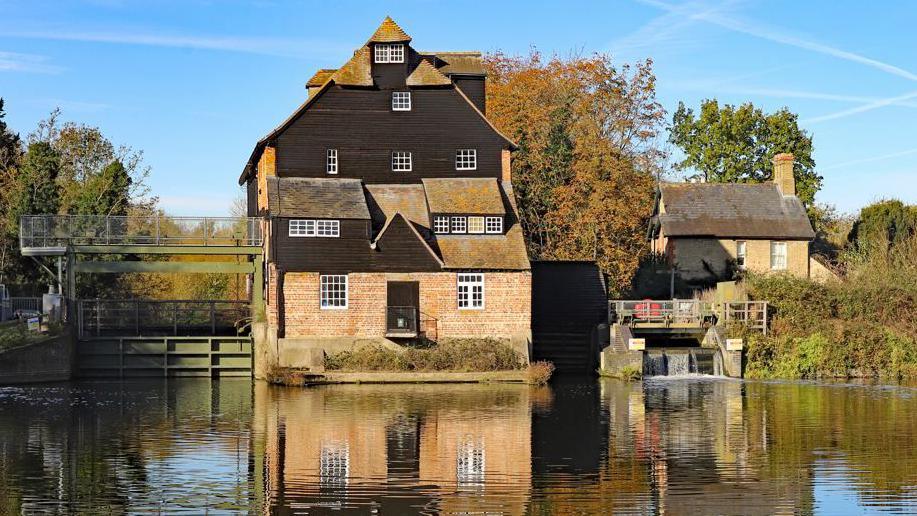
Houghton Mill is the last working watermill on the River Great Ouse
Ayse Lambert, visitor experience officer at the mill, said: "The milling process is environmentally friendly. A traditional waterwheel enables the mill to produce stoneground flour."
Visitors to Houghton Mill can watch the flour being milled each Sunday, until 3 November.
National Trust said during the 18th Century there was a rapid development in mill technology, external and this marked the start of a very prosperous period for Houghton Mill.
Along this 70-mile (113km) stretch of the River Great Ouse there would potentially have been about 120 watermills.
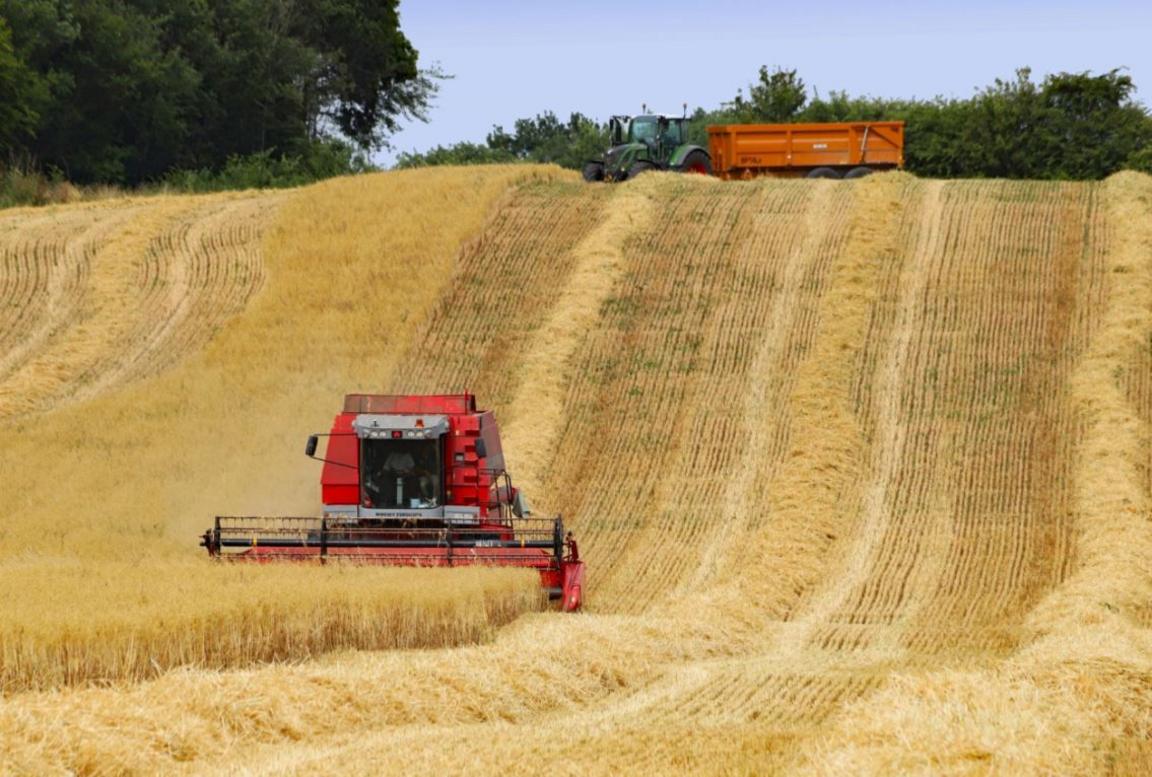
About 200 tonnes (441,000lb) of grain are grown at the Wimpole Estate each year
Get in touch
Do you have a story suggestion for Cambridgeshire?
Follow Cambridgeshire news on BBC Sounds, Facebook, external, Instagram, external and X, external.
Related topics
- Published8 May 2022
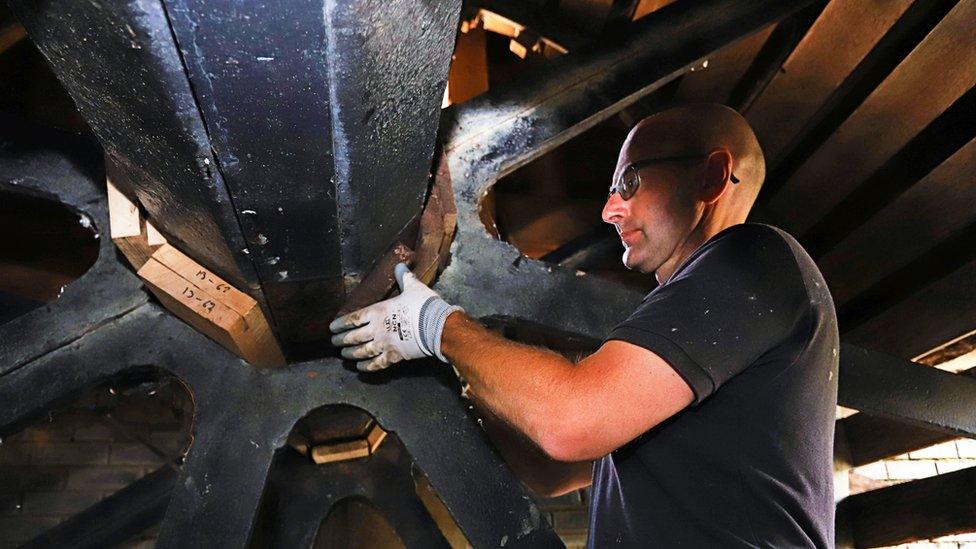
- Published5 December 2019
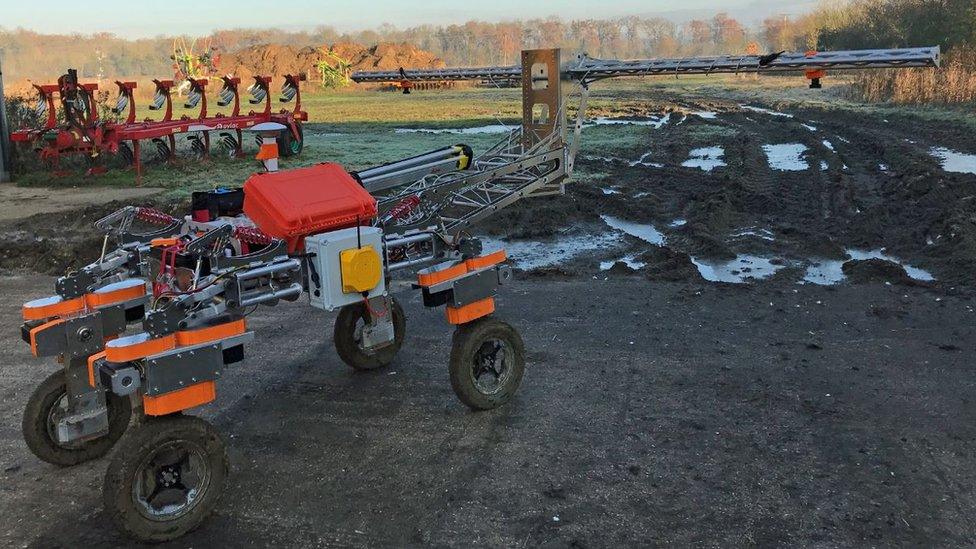
- Published24 February 2022
